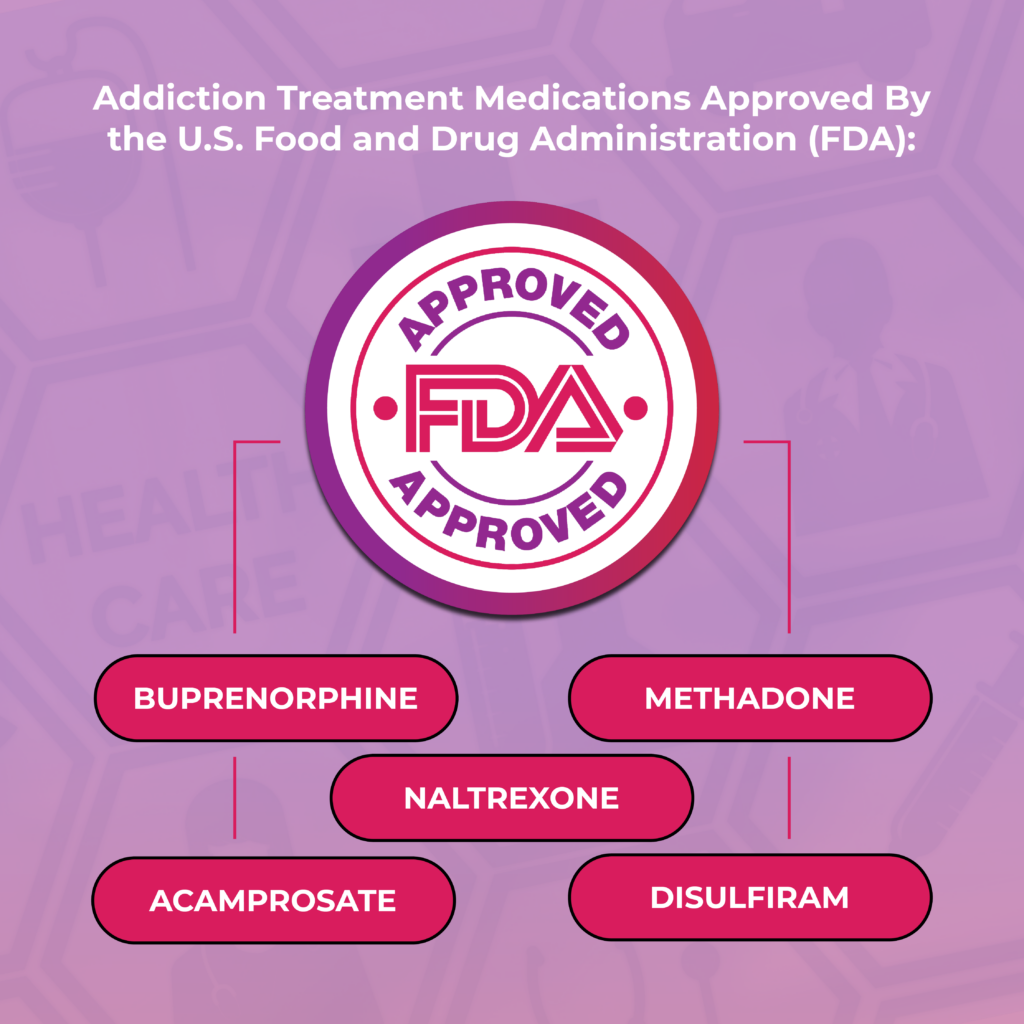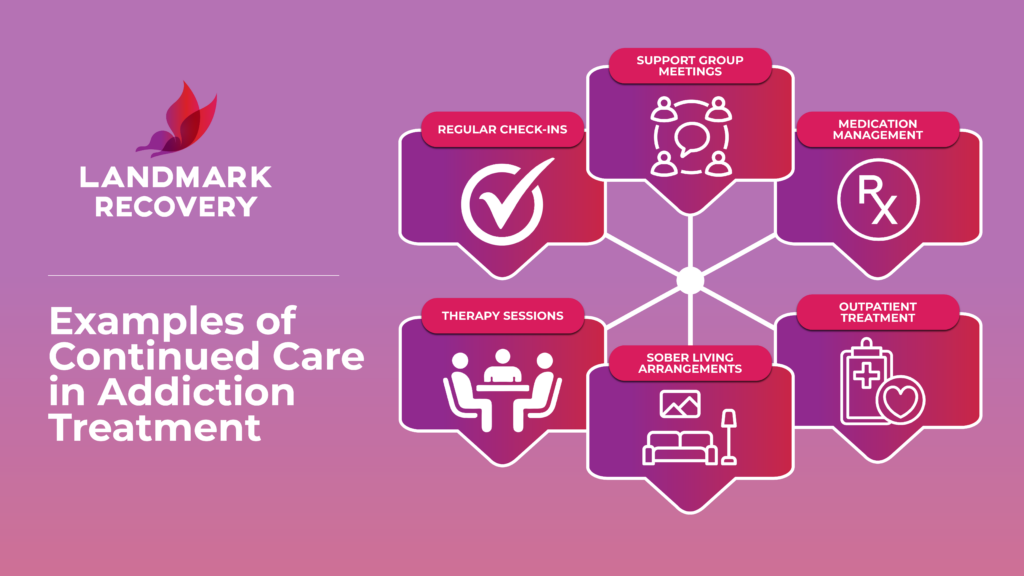Updated: May 26, 2023, at 10:30 a.m.
Finding the right treatment for substance use disorder (SUD) depends on the specific drug type and its impact on both physical and mental health. Each person’s recovery journey is unique, and custom plans are important to address their needs. Effective mental health and substance abuse treatment combines:
- Medications
- Therapies
- Continued care
This blog will explore these treatment options and their effectiveness in addressing substance abuse and mental health.
Medications and Substance Use Disorder Treatment
Medications play a crucial role in SUD treatment, addressing physical and brain changes that happen as a result of substance abuse. They’re designed to make it easier for people to stop using drugs or alcohol, working to:
- Relieve physical withdrawal symptoms
- Reduce mental drug or alcohol cravings
- Restore chemical imbalances in the brain caused by substance abuse
The U.S. Food and Drug Administration (FDA) approved several medications to treat addiction. Here are some common examples:
- Buprenorphine: Helps treat opioid addiction, reducing withdrawal symptoms and cravings. Brand names include Suboxone and Subutex.
- Methadone: Used in clinics to manage opioid addiction. Methadone eases withdrawal symptoms and cravings.
- Naltrexone: Available in oral and injectable forms, helping with alcohol and opioid addiction. Naltrexone blocks both substances’ effects and reduces cravings.
- Disulfiram: Designed for alcohol addiction, disulfiram causes unpleasant reactions if alcohol is consumed and discourages its use.
- Acamprosate: Helps with alcohol addiction treatment. Acamprosate works to reduce cravings and withdrawal symptoms and helps people stay sober.
Check out our visual infographic on FDA-approved medications for addiction treatment to learn more about these effective treatment options.
Behavioral Therapies
Behavioral therapy, also known as talk therapy or counseling, focuses on the mental and behavioral factors of addiction. Licensed professionals work one-on-one to help people:
- Identify emotional and social triggers that lead to substance use
- Manage cravings
- Develop healthy coping skills
Continued Care
Continued care provides ongoing support and services to people who’ve completed addiction treatment. The goal is to equip people in recovery with tools to:
- Handle high-stress challenges
- Develop coping strategies
- Address triggers
- Stay connected to a supportive community
What Are Some Examples of Continued Care in Addiction Treatment?
Learn more with our insightful infographic: “Examples of Continued Care in Addiction Treatment.” Download the infographic and enhance your knowledge of essential strategies for ongoing recovery.
Here are common examples:
- Regular check-ins: Scheduled appointments with healthcare providers to monitor progress, address concerns and adjust the treatment plan as needed.
- Support group meetings: Involve gatherings with recovery peers, providing a supportive community for sharing experiences, receiving encouragement and learning from others who have faced similar challenges.
- Medication management: Close monitoring of medication effectiveness, dosage adjustments and addressing any side effects or concerns related to medication-assisted treatment (MAT).
- Therapy sessions: Ongoing counseling or group therapy sessions to address underlying issues, learn coping skills and develop healthier behaviors.
- Outpatient treatment: Involves structured behavioral therapy and support while living at home. Outpatient treatment programs allow for flexibility and incorporate treatment into daily life.
- Sober living arrangements: Sober living homes provide a supportive, substance-free community for people in early recovery to practice sobriety and develop essential life skills.
Finding Effective Treatment for Substance Abuse And Mental Health
Finding the most effective treatment for SUD is crucial for long-term addiction recovery. The key is to customize the treatment based on the substance used and its severity. By combining medications, behavioral therapies, and continued care, people have a better chance of achieving lasting recovery goals.
To receive personalized guidance and support, it’s important to consult healthcare providers, including doctors and addiction specialists. They have the expertise to assess your symptoms and recommend the most suitable treatment options for your needs.
If you’re in need of immediate assistance or have questions about addiction treatment, Landmark Recovery is ready to serve. Call our confidential phone line at 888-448-0302. Our 24/7 admissions specialists are ready to provide confidential support, answer your questions and guide you toward the next steps in choosing recovery over addiction.

Choose Recovery Over Addiction
We're here 24/7 to help you get the care you need to live life on your terms, without drugs or alcohol. Talk to our recovery specialists today and learn about our integrated treatment programs.






